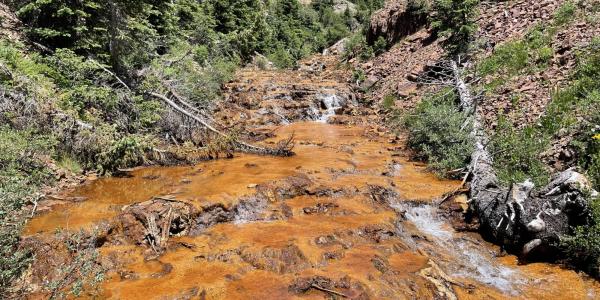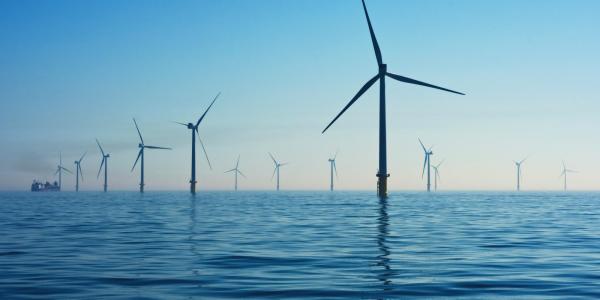The National Science Foundation today announced the Colorado-Wyoming Climate Resilience Engine (CO-WY Engine) as a recipient of its inaugural Regional Innovation Engines program.
The prestigious award totals up to $160 million over 10 years and positions the CO-WY Engine at the forefront of the nation's environmental and climate technology initiatives.
As a key university partner, CU Boulder will enable data analysis, monitoring technologies and predictive analytics to develop trustworthy decision support systems, mitigate environmental and economic degradation and advance climate solutions that result in regional community resiliency and economic vitality. The university will also contribute to the creation and acceleration of new startup companies and play a role in leadership and governance of the CO-WY Engine.
“The selection of the CO-WY Engine underscores our commitment to developing meaningful solutions to climate change by fostering cutting-edge research and technology,” said Chancellor Phil DiStefano. “It's a testament to our success in translating impactful research, and we are proud to work with our regional partners in driving innovation for environmental solutions and community impact.”
The CO-WY Engine marks a pivotal moment not only for the Colorado-Wyoming region but also for its partner research universities. The inclusion of the CO-WY Engine in this national effort highlights the region's capacity to transform into a thriving hub of innovation, technology and economic growth.
“This funding is more than an investment, it's a statement of faith in our ability to lead the charge against climate change,” said Mike Freeman, CEO of Innosphere Ventures, which led the proposal. “The CO-WY Engine will be instrumental in bringing technology-driven solutions to life, reshaping our region's approach to climate resilience.”
Venture Partners at CU Boulder will contribute access to opportunities for startup funding, such as Destination Startup, and entrepreneurial training. Thematically-aligned research expertise from across the university, such as the Mortenson Center in Global Engineering & Resilience and the Earth Lab, will drive the creation of new climate innovations. The university will also provide performance indicator measurement and economic impact modeling through the Business Research Division of the Leeds School of Business and will develop opportunities to help meet regional workforce development needs.
“The CO-WY Engine will build climate resilient communities by combining three of our great strengths at CU Boulder: our research into the challenges of climate, our track record for translating resulting innovations into real-world solutions, and our regional partnerships,” said Bryn Rees, associate vice chancellor for research and innovation and managing director of Venture Partners at CU Boulder and one of five co-principal investigators of the CO-WY Engine.
As but one example, Rees said better wildfire detection could be one outcome of the CO-WY Engine.
“If we can detect and respond to a wildfire 20 or 30 minutes earlier, it can make a difference in being able to preserve a building and save many lives…and maybe also have time to respond early enough to subdue a fire before it gets totally out of control,” Rees said.

CU Boulder engineering students survey a home destroyed by the Marshall Fire with structural engineering researcher Erica Fischer (middle, right) from Oregon State University. The three are part of a larger team studying the engineering impacts of the fire. (Photo by Casey Cass/CU Boulder)
Other participating research universities include: the Colorado School of Mines, Colorado State University, the University of Colorado Denver, the University of Wyoming (UW) and the University of Northern Colorado.
The grant empowers partner universities to engage more deeply in technology transfer and commercialization efforts. This involvement is crucial in translating academic research into tangible, market-ready innovations that address critical environmental and climate challenges facing our region and the world, Rees said. By doing so, the universities will not only contribute to academic knowledge but also play a pivotal role in driving real-world impact, aligning their research goals with the pressing needs of industry, government and communities.
Moreover, the NSF grant aims to elevate the role of universities in workforce development. As the region evolves into a leading innovation ecosystem, the demand for a skilled workforce conversant with the latest technologies and practices in climate resilience will surge
Partner universities are poised to become central to developing this workforce, offering specialized programs and training to prepare students and professionals for the emerging job market, according to a news release issued by the CO-WY Engine. This role aligns with the mission of these institutions to educate and empower the next generation of leaders and innovators.
“Together, with our partners at other research institutions, companies and startup support organizations, we will be creating and accelerating technologies and businesses that directly address challenges like wildfire, water security and drought,” Rees said. “The unprecedented scope and scale of the NSF program, which encompasses research, innovation and workforce development, positions the CO-WY Engine to make a real difference across our ecosystem.”



